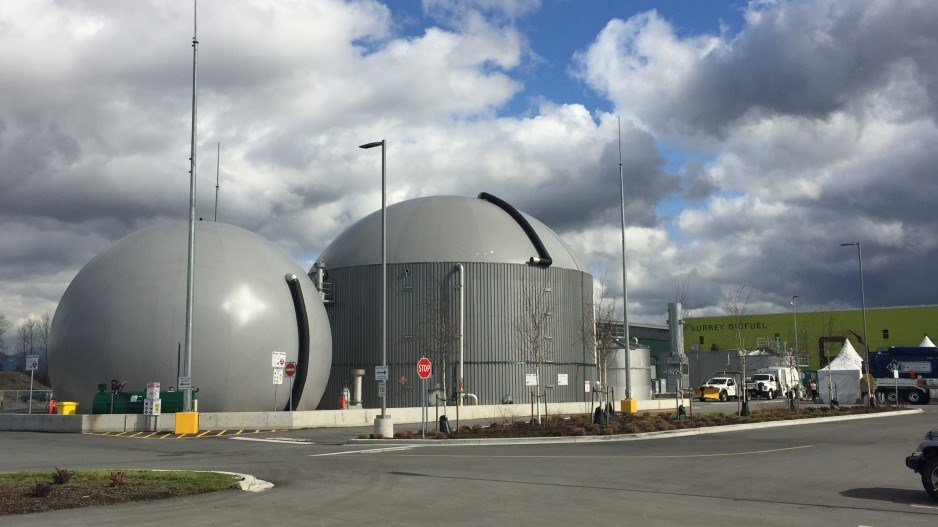Five years ago, when the City of Vancouver began implementing its Renewable City Strategy, it set off alarm bells for both suppliers and users of natural gas.
With a policy of requiring all new buildings to be carbon neutral by 2030, the policy appeared to sound the death knell for natural gas as a home and water heating option in Vancouver.
The only way new homeowners would be able to use natural gas for heating would be if FortisBC could provide enough renewable natural gas (RNG) -- methane captured from landfills, sewage treatment plants and organic waste – to supply new homes in Vancouver with 100% renewable gas.
In 2017, the amount of RNG that FortisBC produced comprised just 0.25% of its total natural gas supply.
But since then, FortisBC has stepped up its plan to acquire new sources of RNG, righjt across Canada, and now believes it can supply all new homes -- not just in Vancouver but across B.C. -- with 100% renewable natural gas.
To that end, it has applied to the BC Utilities Commission (BCUC) for approval of its plan. The BCUC’s approval is needed because amendments will be needed for things like tariffs and cost recovery, and all customers in B.C. will be affected by the tariff changes.
RNG is more expensive to produce than regular natural gas. But FortisBC would not charge a premium to customers using 100% RNG, said Jason Wolfe, FortisBC’s director of energy solutions. Rather, all of FortisBC’s natural gas customers would pay an increased premium.
“All customers will start to see a slight increase in their bills because of the cost of renewable gas as being a little bit higher than regular gas,” Wolfe said. “However, when we spread it out over all customers, it won’t be too bad.”
Even with increased premiums, and even with natural gas prices in North America on the rise, natural gas could still be cheaper for home heating than electric baseboard heating, although heating with electricity becomes a lot more cost competitive when homeowners install heat pumps, which use much less electricity and provide both heating in the winter and cooling in the summer.
Since 2017, FortisBC has been on a mission to increase its production of or acquisition of RNG supplies. In 2020, FortisBC produced or acquired and delivered 251,000 gigajoules of RNG.
“We tripled that last year to just over 700,000,” Wolfe said. “We will triple that again this year to 2.1 million gigajoules. By 2025, we actually expect around 24 million gigajoules, which is about 10% of our natural gas supply.
“We are the first utility in North America to offer a renewable gas program and we are the first proposing to do 100% renewable for new residential customers. So it is a big change.”
The goal is to reach a 15% RNG content by 2030, which is when FortisBC hopes to also achieve a 30% reduction in its overall greenhouse gas intensity.
FortisBC's RNG strategy has helped spawn a new industry here in B.C. Last year, a new company, EverGen, which is in the RNG development space, went public and began listing on the TSX Venture exhange.
FortisBC has a 20-year contract with EverGen to buy up to 173,000 gigajoules of renewable natural gas (RNG) annually. EverGen owns one producing RNG plant -- Fraser Valley Biogas, which is being expanded -- and one in development in Abbotsford.
"We've got two projects that will be producing into Fortis's network," said EverGen CEO Chase Edgelow. "What it means is there's dedicated end-users for that gas...and it really gives us, as a deverloper of RNG projects in B.C. and beyond, the ability to continue to expand, continue to build additional projects knowing that that gas has a place in the market."




